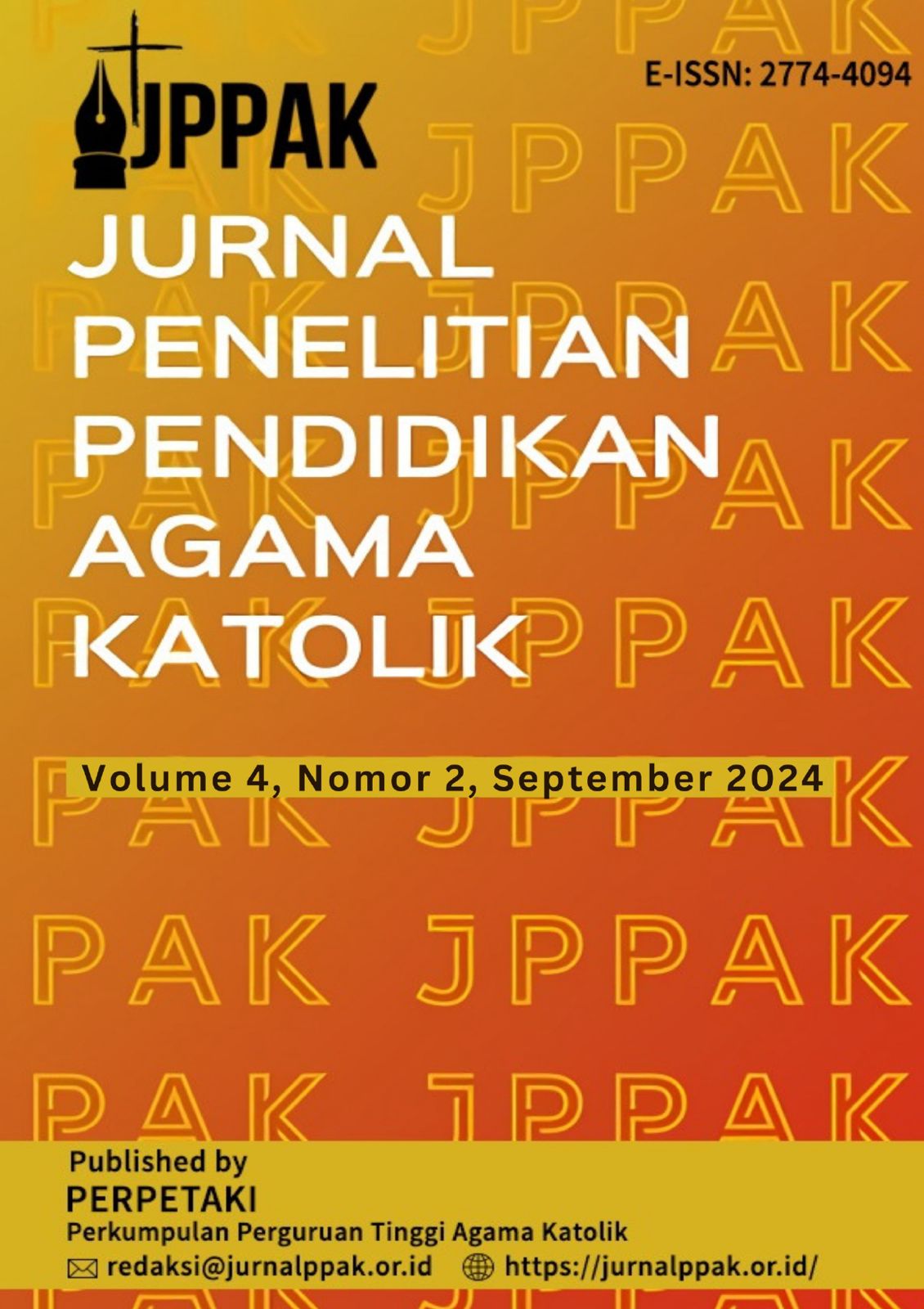Implementasi Kurikulum Merdeka Belajar untuk Meningkatkan Minat Belajar Siswa Kelas X di SMA Katolik Seminari Santo Fransiskus Xaverius Kakaskasen
DOI:
https://doi.org/10.52110/jppak.v4i2.143Keywords:
Curriculum, Merdeka Belajar, Interest in Learning, High School StudentAbstract
Interest in learning is one of the main things that can support the learning process. In fact, there are still many students who feel bored with learning and are bored because the way of learning is still conventional. This relates to the curriculum used by schools because one of the supporting factors for increasing student interest in learning is the curriculum. This research was conducted at St. Francis Xavier Seminary Kakaskasen High School, to find out how the implementation of the Free Learning Curriculum for Increasing Student Interest in Class X, supporting and inhibiting factors and efforts to increase student learning interest in implementing the Free Learning Curriculum. The type of method used is a descriptive qualitative method. The research results obtained are that the Free Learning Curriculum has been implemented in the Catholic High School Seminary of St. Francis Xavier Kakaskasen. In addition, there are supporting factors such as availability platform independent teaching, the existence of IHT activities or outreach, and inhibiting factors such as lack of internet access and computer room and inadequate infrastructure. As for the efforts made by the school, namely carrying out mock study activities for teachers at SMA N 8 Manado, teachers must be more creative in the learning process, and regarding the provision of infrastructure. Thus conclusions can be drawn including: First, the Free Learning Curriculum has been implemented in Seminary High Schools which is marked by the existence of the Pancasila Student Profile Strengthening Project activity. Second, there are factors that influence the implementation of the Independent Learning Curriculum for the sake of increasing student learning interest which are described in supporting and inhibiting factors. Third, the efforts made by the school are carrying out replicated studies at other schools regarding the Free Learning Curriculum, the way teachers create fun learning, and the provision of supportive school facilities.
Downloads
##submission.downloads##
Submitted
Accepted
Published
How to Cite
Issue
Section
License
Copyright (c) 2024 Christofora Dominika Kalele, Fecky Evendy Singal, Marthinus Marcel Lintong

This work is licensed under a Creative Commons Attribution-ShareAlike 4.0 International License.
Copyright Notice and Permissions
Jurnal Penelitian Pendidikan Agama Katolik offers immediate open access to all its content on the principle to make researches freely available to the public, especially to the scholars, to support greater global exchanges of knowledge. This journal encourages all scholarly authors to allow their research openly available, free access and without time restrictions.
All articles published Open Access will be immediately and permanently free for everyone to read and download. Under the CC BY-SA 4.0 license, authors retain ownership of the copyright for their article, however authors grant others permission to use the content of publications in Jurnal Penelitian Pendidikan Agama Katolik (JPPAK) in whole or in part provided that the original work is properly cited. Users (redistributors) of Jurnal Penelitian Pendidikan Agama Katolik (JPPAK) are required to cite the original source by including at least: the full title of the article, the author's or authors' full name(s), JPPAK as the initial source of publication, year of publication and volume number using a propriate citing method.
Copyright encompasses exclusive rights to reproduce and deliver the article in all form and media, including reprints, photographs, microfilms and any other similar reproductions, as well as translations. The reproduction of any part of this journal, its storage in databases and its transmission by any form or media, such as electronic, electrostatic and mechanical copies, photocopies, recordings, magnetic media is prohibited without consent of Jurnal Penelitian Pendidikan Agama Katolik (JPPAK).
Jurnal Penelitian Pendidikan Agama Katolik (JPPAK) is licensed under a Creative Commons Attribution Share-Alike 4.0 International. (CC BY-SA 4.0)
Authors who publish with Jurnal Penelitian Pendidikan Agama Katolik (JPPAK) agree to the following terms:
- Authors retain copyright and grant the journal right of first publication with the work simultaneously licensed under a Creative Commons Attribution Share-Alike 4.0 International (CC BY-SA 4.0) license that allows others to share the work with an acknowledgement of the work's authorship and initial publication in this journal.
- Authors are able to enter into separate, additional contractual arrangements for the non-exclusive distribution of the journal's published version of the work (e.g., post it to an institutional repository or publish it in a book), with an acknowledgement of its initial publication in this journal.
- Authors are permitted and encouraged to post their work online (e.g., in institutional repositories or on their website) after the publication on JPPAK, as long as it not published on other OJS for it will be treated as plagiarism by plagiarism checker apps. It can lead to productive exchanges, as well as earlier and greater citation of published work (See The Effect of Open Access).












